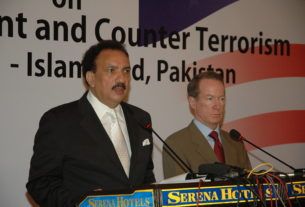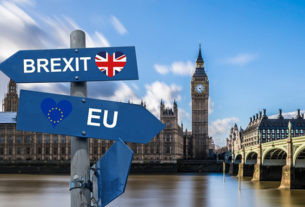The Observer, The Telegraph, The Mirror – and now The New European: Tim Walker is an award-winning journalist who has worked for newspapers from a very young age, on the right, centre and left of the political spectrum.
Once a writer for the Telegraph and now a critic of it: Tim Walker’s transition shows that he always puts principles before pay, truth over ideology and proper journalism over shallow commentary. As such, his advice to new and budding journalists is to “be yourselves and be true to what you believe in, not what the proprietor you end up working for believes in”. As an award-winning journalist he is deservedly writing for an award-winning newspaper, The New European.
During the interview, I questioned Mr. Walker regarding his persistent criticism of the BBC, enquired about his relentless critique of Jeremy Corbyn’s approach to Brexit and what he thinks about the Prime Minister’s Withdrawal Agreement. We also conversed about a few other pressing issues, namely, the connections between British colonialism and Brexit, and fake news – and how this can be tackled while simultaneously upholding the right to freedom of expression and freedom of speech.
______________________________________________________________________________
From your tweets, it’s very evident that you’re a regular critic of the BBC (because of their alleged) bias towards Leave. But, isn’t this criticism hypocritical given that you’re explicitly and heavily pro-remain?
I was on the BBC a great deal before all of this began – maybe three or four times a month on television and often on the radio, including the Today programme. The BBC now has me on around two or three times a year. And, the last time I was on I was told not to talk about Brexit. This seems to me to be McCarthyism given that the views I hold are shared by at least half of the population and I would guess probably now significantly more than that.
I might add I got a call on my day-off the other day from The Jeremy Vine Show asking me to talk about James Dyson, and, you know, I didn’t even bother to get out of my pyjamas as I knew they’d call back in ten minutes and cancel when they realised I was pro-EU. And, sure enough, they did. I might add Adam Boulton still regularly has me on All Out Politics on Sky so it is not as if I have suddenly been deprived of the power of speech or anything like that.
As a Remainer and ardent pro-European, do you actually think that Brexit can still be stopped at this late stage?
Once we leave, we have left, and it looks to me as if we will sleepwalk up to March 29 and step over that deadline by default. I think people will look back on this time and wonder at the complacency of vast swathes of the electorate and the mendacity of so many of our journalists and politicians. I think historians will revere people like Gina Miller – a huge inspiration to me personally – and revile self-serving, venal oafs such as Boris Johnson. May and Corbyn will mystify them – that neither of them could apparently give a damn about their country.
You regularly criticise Jeremy Corbyn on Twitter, however, don’t you think that this is a distraction from the fight against Brexit?
Corbyn is not part of the solution when it comes to Brexit, but very much part of the problem. I attack him because he has made himself constructively redundant. We do not currently have a leader of the opposition as he agrees with Mrs May about the most extreme right wing policy any party has ever sought to implement in my lifetime, and that is of course Brexit. He is a waste of space.
As an insurance policy, don’t you think Remainers should actually support the Prime Minister’s deal to avoid a self-destructive, disastrous and catastrophic hard Brexit?
All of us who care about our country should act in the national interest. Mrs May’s deal was overwhelmingly and historically rejected by the House of Commons because it is manifestly worse than the arrangement we have now with the EU. If you offered to cut off my left hand or my right foot I am afraid I would tell you I would rather you did neither. That is my position on Mrs May’s deal and no-deal.
In Inglorious Empire – What the British did to India, Shashi Tharoor wrote that “The British public is woefully ignorant of the realities of the British empire, and what it meant to its subject people”.
To what extent do you think this is accurate?
I think this is a generalisation. I see a generation coming up that is prepared to challenge a lot of the old orthodoxies. We did good and bad when we had an empire, but, if honest, while I accept our present and future is often shaped by our past, I do not obsess about it as I try to think more about the future.
Do you think this ‘ignorance’ played a role in the support for Brexit?
I think it was more about large numbers of voters not being able to get their heads around the fact that supposedly respectable senior politicians would lie to them quite so brazenly.
Focusing now on journalists and journalism. What do you think is the best way to combat #FakeNews while upholding Freedom of Speech?
Ask questions. Fact check. Develop a healthy degree of scepticism. Listen to what your MP is saying, and if, for instance, it is Boris Johnson, look him up in the Register of Members’ Interests. If the pro-Brexit Barclay brothers are paying him £270,000 to write for the Telegraph, and the House of Commons around £80,000 as a backbench MP, ask yourself where his loyalties might lie.
To finish on a lighter note, what advice would you like to give to new journalists?
Be yourselves and be true to what you believe in, not what the proprietor you end up working for believes in. All the journalists I love the most – Kevin Maguire, Matthew d’Ancona and, though sadly no longer with us, Anthony Howard, who gave me my first national newspaper job on The Observer – command respect because they are always true to their own lights. We need more individualists in journalism, not more yes men and women. People like that come and go and are quickly forgotten.
______________________________________________________________________________
Muhammed Raza Hussain is an award-winning writer: he is the Extra-Mile winner of the News Quest Young Reporter Scheme 2014 and received a certificate for Talent for Writing by Young Writers. Twitter @MuhammedRaza786 | Instagram: M.Raza.H_ | Facebook: @MRazaHOfficial





Mr. Raza Hussain, Thank you for such a great interview with Mr. Tim Walker. It really helps put things in perspective from his end.
Andy Post
CNN.com
A very good and regrettably true interview. Thank you!
I remember this guy on the BBC a lot before all of this madness – witty, articulate and knew what he was talking about. I wonder how many journalists like him have been silenced in these dark and fascistic times?
The problem with the BBC now is that it has friends and enemies. That is fine if you are the Daily Mail – which is privately owned – but not when you are the BBC and you are effectively owned by the public. That means there is a tier of middle management that is taking it upon themselves to keep people like Tim Walker off the screen because they don’t like his views/like it that he criticises them. Good for Tim for being willing to take a hit on his freelance earnings – there is a lot of money to be made appearing on air regularly – by being willing to make enemies of BBC executives.
Thank you for this interview. What i see of Tim Walkers articles, or indeed his comments on social media, I find myself nearly always in agreement.
An articulate, well reasoned journalist who desrves more exposure.
Unfortunately, for reasons i am cant recall he has blocked me on Twitter😭
Of course if he reads this and decides to unblock me….?😊😊